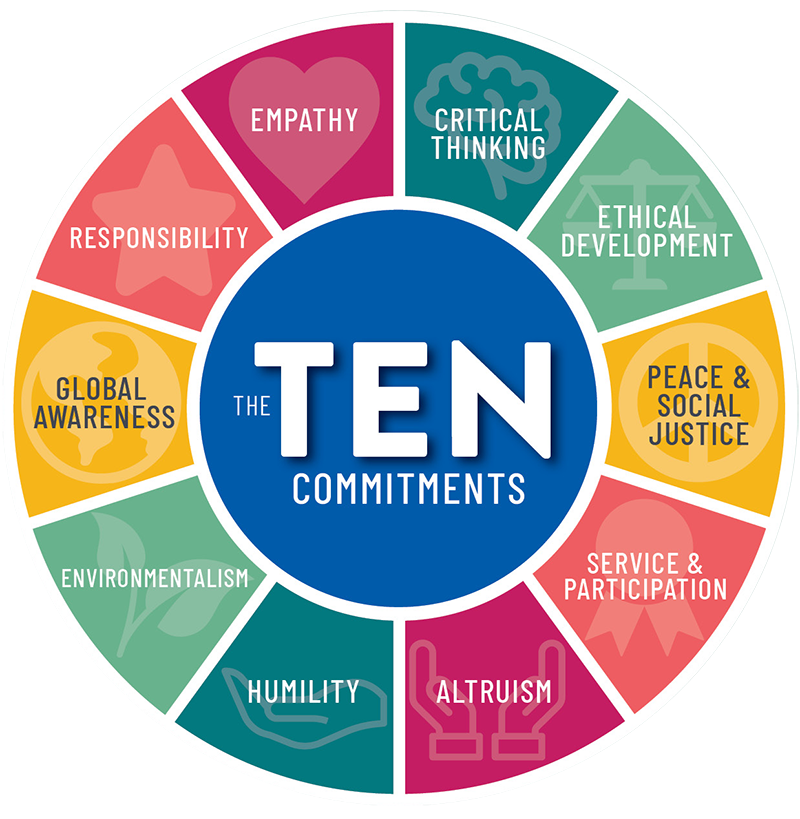Humanists Should Support the U.S. Citizenship Act of 2021
 Photo by Josh Johnson on Unsplash
Photo by Josh Johnson on Unsplash Last month, President Joe Biden forwarded to Congress the U.S. Citizenship Act of 2021 which offers undocumented immigrants in the United States a path to citizenship. The bill is an extensive immigration reform package supported by President Biden. Most notably, the bill creates an eight-year pathway to citizenship for noncitizens who resided in the United States before January 1, 2021. An expedited three-year path is available to Temporary Protective Status (TPS) holders, Dreamers (people who have lived in the U.S. undocumented since being brought here as minors), and farm workers.
Additionally, this bill creates stronger community and state support for refugees and asylees, revises policies that currently separate families, provides aid to foreign countries in an effort to reduce migration catalysts, and―not aligned with AHA policy―increases funding for the Department of Homeland Security (DHS), the Drug Enforcement Administration (DEA), the Federal Bureau of Investigation (FBI), and DHS counter-criminal activity work. The bill also has broad visa expansions, improving access to green cards for workers in lower-wage sectors as well as making it easier for graduates of U.S. universities with advanced STEM degrees to stay in the United States. The NO BAN Act, which “prohibits religious discrimination in various immigration-related decisions, such as whether to issue an immigrant or non-immigrant visa, unless there is a statutory basis for such discrimination,” is also included in this bill, as well as language that eliminates legal barriers faced by LGBTQ+ families.
So why should humanists care about the U.S. Citizenship Act of 2021? Let’s take a look at the AHA’s Ten Commitments, a framework that illustrates some of the central components humanists—and most people focused on “good”—can agree on. Several of these Commitments help explain why supporting this path to citizenship is an essential part of being a humanist. Just a sampling includes:
Critical Thinking
The U.S. Citizen Act of 2021 is based on evidence-based support for championing a pathway to citizenship. Rather than writing policy from ideological beliefs, the Act is grounded on the actual role that immigrants play. For example, supporting a pathway to citizenship is beneficial for the economy. Immigrants make up more than a third of the workforce in some industries. They are some of the most entrepreneurial in our country, with more than 30 percent of new entrepreneurs in 2017 being immigrants. They bring new ideas and innovation. Even tech giants like Google, Apple, Microsoft, Oracle, and more, were either started by immigrants or are run by them/their children. Many immigrants are looking for short term security—i.e. the chance to earn money and then go back to their home country safe and financially stable—and legal immigration would bring about a regulated ebb and flow of labor. Immigrants are not only helping the country and economy right now, but the country is also relying on them to continue pushing us in a successful and positive direction. In fact, the benefits of immigration far outweigh the costs. As outlined by the George W. Bush Institute, immigrants help the economy in terms of skills, labor, and general innovation.
Empathy and Ethical Development
Empathy and ethics are necessary to our beliefs as humanists. While we champion science and reason, without empathy and ethics it is easy to misuse and disregard “good” for the sake of progress. We must ask ourselves if progress is beneficial when it disregards the lives of millions. This bill is cemented in reason, research, and critical study, but it also serves as an empathic, ethical option to millions of people―undocumented U.S. residents―who live in the shadows of fear in this country. It’s important to use empathy and ethics when we consider whether we support any public policy.
Global Awareness
As humanists, our understanding of global awareness is important to develop our knowledge of other cultures, ideas, and expertise. This bill puts a lot of emphasis on research to study the effects of migration and to provide empathetic and research-based solutions. The bill will study “push factors”—the things that push people to leave their countries—and will analyze methods to help people find economic opportunities as well as environmental stability and safety to stay in their own countries. Our global awareness of the world around us, including migration patterns, will allow us to make reason-based decisions when it comes to our views on immigration policy and a path to citizenship.
Peace and Social Justice
While immigration policy is a contentious issue, supporting immigrants and undocumented U.S. residents is aligned with humanist values. While we may not witness the horrible cases of family separation, the gnawing anxiety of undocumented families as family members are thrown into detention centers, or the pain of Dreamers who live in limbo because of their immigration status, we need to examine their stories and open our minds to doing good by those who are most in need.
Human rights, ethics, and the pursuit of good (which includes social justice) are components of humanism that are essential to our movement’s progress. The American Humanist Association defines humanism as “a nontheistic worldview with ethical values informed by scientific knowledge and driven by a desire to meet the needs of people in the here and now. At the foundation of those values is an affirmation of the dignity of every human being.” These aspects of the humanist life stance directly follow from our centering of humanity. Ethics, empathy, and social justice are imperative in order to build a humanistic society that truly celebrates “good”.
The U.S. Citizenship Act of 2021 provides a comprehensive policy system, based in both research and empathy, to move our immigration system into the future. Science, free inquiry, and reason should be used to further the development of good, fairness and justice. Leading with these ideas forwards the humanist movement along the path of progress.

